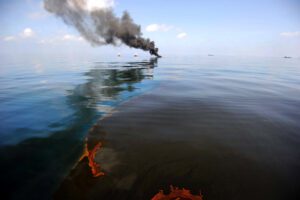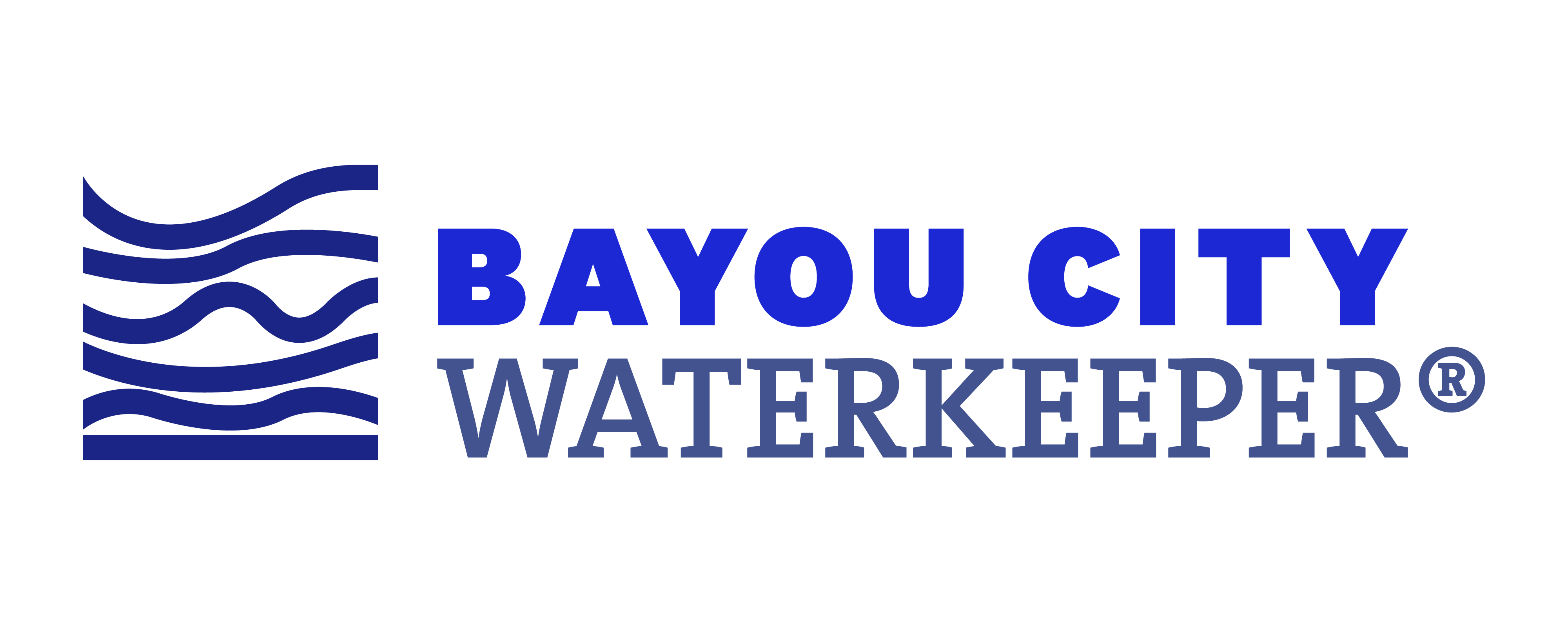By
Kristen Schlemmer
Category
Climate Justice, Gulf
Date
September 23, 2022
Today, a coalition of environmental organizations, including Bayou City Waterkeeper, San Antonio Bay Estuarine Waterkeeper, Society of Native Nations, the Surfrider Foundation, and Turtle Island Restoration Network, filed an amicus brief urging the U.S. Court of Appeals for the D.C. Circuit to protect communities and ecosystems along the Texas coast from the environmental harms that will result from Lease Sale 257— the largest oil and gas lease sale in U.S. history. The amicus brief supports Friends of the Earth, Healthy Gulf, Center for Biological Diversity, and Sierra Club’s victory in Friends of the Earth v. Haaland, which concluded oil-and-gas leasing may not move forward without fully analyzing downstream climate impacts.
The case asks whether approval of the country’s largest-ever offshore oil-and-gas lease sale can proceed where it rests on a record that failed to inform the government and public of the true amount of carbon emissions and stakes for the global climate. Just as international bodies warn that new fossil fuel investments may push the climate past a catastrophic tipping point, the federal government, through Lease Sale 257, offered more than 80 million acres in the Gulf to oil-and-gas extraction. “This lease sale will spur massive oil-and-gas buildout that will harm Gulf Coast communities and ecosystems that already have been hardest hit by fossil fuel development over the last century and are now at the frontlines of climate change,” said Frankie Orona, Executive Director of Society of Native Nations.

In allowing oil and gas development in the Gulf, federal regulators must consider the impacts of potential oil spills
“Under the National Environmental Policy Act, federal agencies must consider the full scope of environmental impacts from decisions on this scale before moving forward,” said Kristen Schlemmer, Legal Director and Waterkeeper for Houston-based organization Bayou City Waterkeeper. “Those of us living along the Gulf must understand how this leasing decision will worsen climate risks for our communities and ecosystems.”
“The Gulf of Mexico is a place of extraordinary natural beauty, complex and interdependent ecosystems, and high levels of ecological diversity, and is home to more than 15 million people,” said Co-Chair of the Surfrider Foundation’s Texas Coastal Bend Chapter, Neil McQueen. “By insisting that Lease Sale 257 should move forward without any meaningful climate analysis, friends of the oil-and-gas industry behind this appeal treat the Gulf as a sacrifice zone designed for their own economic benefits,” added Joanie Steinhaus, the Gulf Director for Turtle Island Restoration Network.

Oil spill along the Gulf coast
Diane Wilson, Executive Director and Waterkeeper of the San Antonio Bay Estuarine Waterkeeper, said, “Fishing communities and fisheries stakeholders on the Gulf Coast are critical eyewitnesses to the devastating impacts of these oil and gas lease sales on our mother, the sea. We say no, not now, never again.”
Last week, even while this appeal moves forward, the Department of Interior reinstated Lease Sale 257 in response to directives included in the Inflation Reduction Act as concessions to the oil-and-gas industry. The environmental organizations maintain that the action to reinstate the leases does not relieve the federal government of its obligations under NEPA to account for climate impacts.
The case name is Friends of the Earth et al. v. Haaland. The case number is 22-5036/22-5037. San Antonio Bay Estuarine Waterkeeper, Society of Native Nations, the Surfrider Foundation, and Turtle Island Restoration Network are represented by Stephanie Safdi of the Stanford Environmental Law Clinic. Bayou City Waterkeeper is represented by its Legal Director Kristen Schlemmer.
